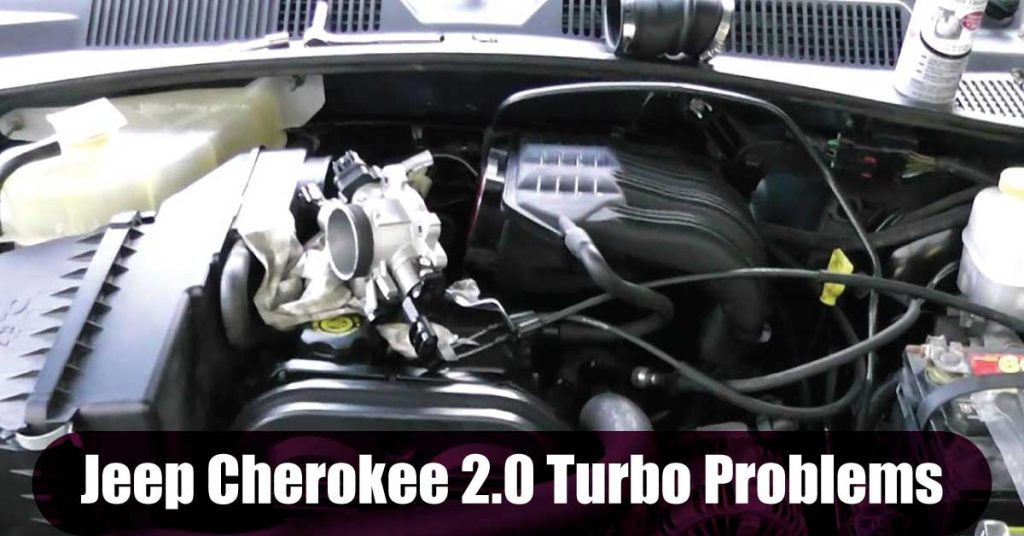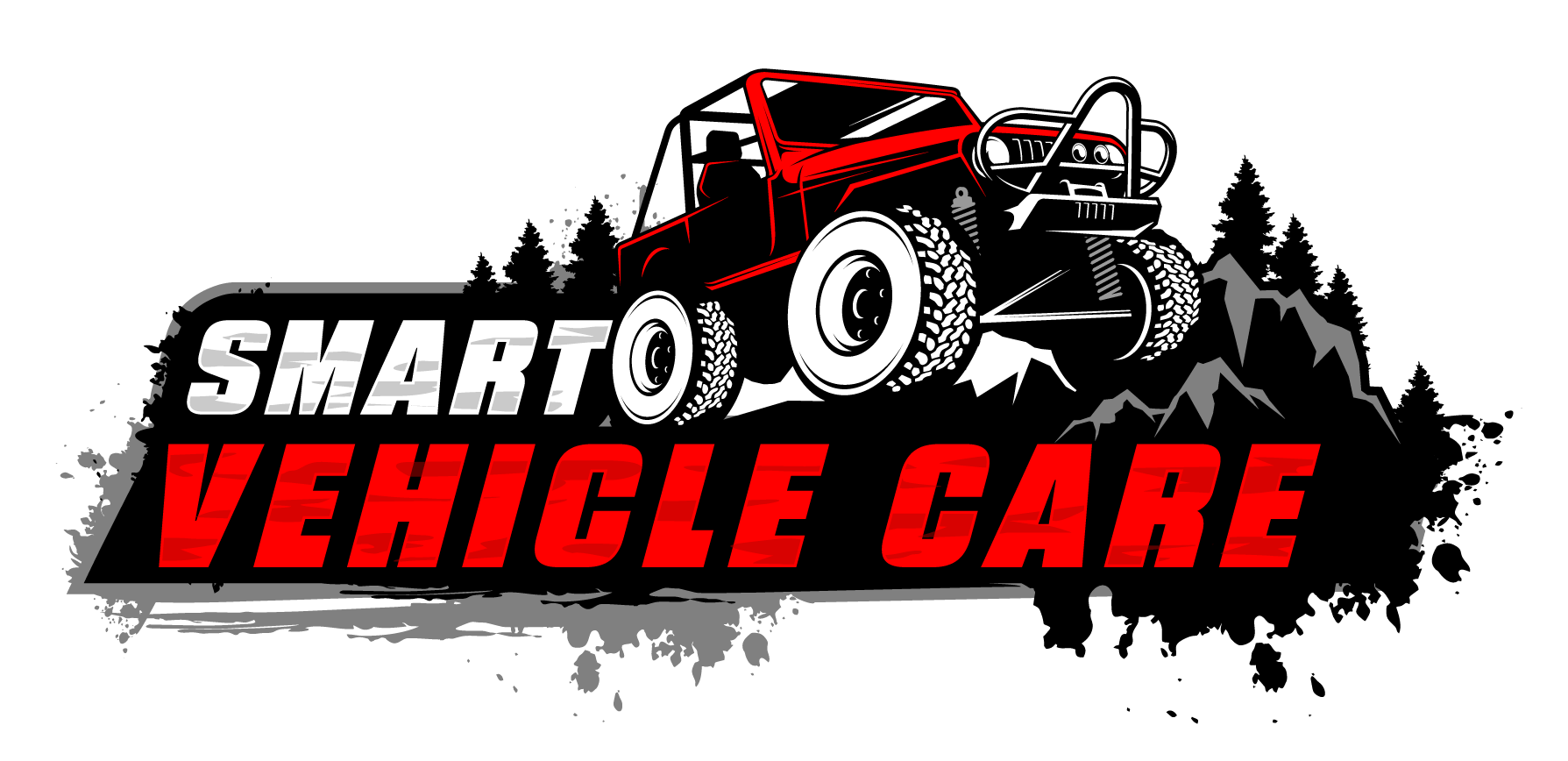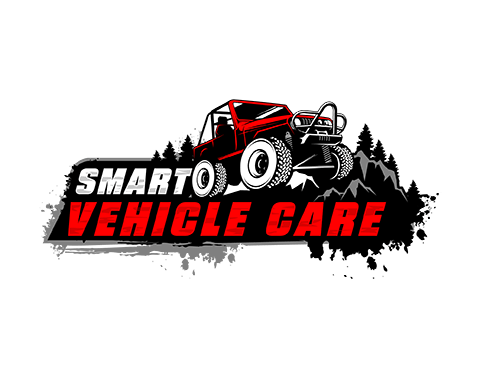
The Jeep Cherokee 2.0 Turbo engine is a powerful and efficient option for drivers seeking a capable off-road vehicle. In 2018 Jeep enthusiasts were introduced to this impressive turbocharged engine.
Jeep’s 2.0 Turbo engine can produce up to 270 horsepower and 295 lb-ft of torque. It makes it ideal for challenging terrain while improving fuel efficiency. That’s just right for rocky trails or cruising down the highway.
Even though Jeep 2.0 Turbo engines are one of the best on the market, Jeep owners face some common problems. Before utilizing this engine, it’s crucial to understand these problems.
Most Common Jeep Cherokee 2.0 Turbo Problems include the absence of a manual transmission. They also include turbo lag, oil leakage, a faulty wastegate, low horsepower and torque, high maintenance costs, and potential battery coolant leaks.
We’ll give you a comprehensive overview of the most prevalent issues with the Jeep 2.0 Turbo engine. It’ll help you make better decisions.
Let’s dig in.
The Most Common Jeep Cherokee 2.0 Turbo Problems
You might find that your Jeep Cherokee 2.0 turbo engine has flaws like any other engine. So, sit back, relax, and read on to learn about Jeep Cherokee 2.0 Turbo problems!
Turbo Lag
The Jeep 2.0 Turbo engine is a powerful and efficient option for drivers seeking a capable off-road vehicle. One common issue Jeep 2.0 Turbo owners report is turbo lag.
Turbo lag refers to a delay in engine response when accelerating. In the case of the Jeep 2.0 Turbo engine, this lag can be noticeable when the engine operates at low RPMs. Drivers may experience a brief delay when pressing the accelerator pedal.
However, drivers may find this delay frustrating when they need to accelerate faster. You can pass on the highway or navigate challenging off-road terrain.
Turbo lag causes vary but are often related to the turbocharger’s design and function. Turbochargers can be too big or have too much inertia, slowing response times. Other times, the engine’s air intake system might not be optimized for the turbocharger.
How to fix it?
One possible solution is to install a throttle booster to reduce turbo lag in the Jeep 2.0 Turbo engine. The device increases airflow into the engine, increasing throttle response time. Doing so increases the engine’s power, which can eliminate the lag.
A throttle booster amplifies the signal from the accelerator pedal to the engine’s throttle, resulting in a faster response time. This could be an ideal solution for Jeep 2.0 Turbo drivers who want to minimize turbo lag.
Lack Of Manual Transmission
The most common problem reported with the Jeep 2.0 Turbo engine is the lack of a manual transmission option. Some drivers prefer manual gearboxes and engagement.
A manual transmission lets the driver directly control the engine’s power output by selecting the appropriate gears. This can be helpful for off-road driving, where low-speed crawling and precise throttle control are often necessary. Manual gearboxes are popular among some drivers.
But its 2.0-litre turbo engine only has an eight-speed automatic transmission. While capable and efficient, it’s not as engaging and controllable as a manual.
Jeep 2.0 Turbo doesn’t come with a manual transmission, but that’s not necessarily a technical issue. Instead, it’s a design choice made by Jeep.
How To fix it?
Drivers looking for manual gearboxes may not have an easy solution.
Oil Leakage
Oil leakage can occur for several reasons, including faulty seals, gaskets, or drain plugs. It can cause various issues, such as reduced engine performance, damage, and environmental pollution.
A faulty oil pan gasket is one potential cause of oil leakage in the Jeep 2.0 Turbo engine. Oil leaks from the engine when the oil pan gasket deteriorates. Wear or damage to the valve cover gasket can also cause oil leaks.
How to fix it?
To fix an oil leakage problem in the Jeep 2.0 Turbo engine, it’s essential to identify the root cause of the issue. A gasket replacement can be a straightforward repair depending on the cause of the leak. It can also be complex and expensive, such as replacing a turbocharger oil supply line.
Faulty Wastegate
A faulty wastegate is another Jeep 2.0 Turbo problem. The wastegate controls the amount of exhaust gas that flows into the turbocharger. It regulates its speed and prevents over-boosting. When the wastegate is faulty, it can cause various issues, including reduced engine performance and increased fuel consumption.
Soot or debris buildup could cause a faulty Jeep 2.0 Turbo wastegate. It can mess up the wastegate. When this buildup gets too much, the wastegate can get stuck. This also affects the boost pressure.
Another cause of a faulty wastegate is wear and damage to the actuator. Wastegate actuators can wear out and become ineffective, causing boost pressure problems.
How to fix it?
It was first necessary to diagnose the root cause of the Jeep 2.0 Turbo’s faulty wastegate. Clean the wastegate and its associated components or replace the actuator.
A faulty wastegate may require a new turbocharger assembly. The Jeep 2.0 Turbo engine should be repaired or replaced by a qualified mechanic.
Low Horsepower & Torque
Another issue is Jeep 2.0 Turbo engine’s relatively low horsepower and torque. This lack of power can frustrate drivers looking for a more robust and capable engine.
Jeep 2.0 Turbo engines have low horsepower and torque output for a few reasons. Engine displacement may be a factor. A 2.0-liter engine may not provide enough power for drivers.
Turbochargers can also cause low horsepower and torque. The turbocharger increases engine performance but may not provide enough power boost. This can be due to various issues, such as a faulty wastegate or a clogged air filter.
How to fix it?
There are a few ways to fix Jeep 2.0 Turbo engine’s low horsepower and torque. Upgrade the turbocharger to a bigger or more powerful one. It increases boost pressure and improves engine performance.
High Maintenance Cost
The high maintenance cost problem in Jeep 2.0 turbo can be attributed to several factors.
The Jeep 2.0 turbo engine is complex machinery with many advanced features. Diagnosing and repairing these technologies requires specialized knowledge, tools, and equipment. It makes maintenance costs higher than average.
The Jeep 2.0 turbo engine is a high-performance engine that requires premium-grade gasoline. That is more expensive than conventional gasoline. This can also contribute to higher maintenance costs over time.
Battery Coolant Leak
The Jeep 2.0 turbo engine has a battery coolant system that regulates the battery pack’s temperature. This system includes a coolant reservoir, pump, and hoses. In some cases, battery coolant leaks have been reported in the Jeep 2.0 turbo.
If you suspect that your Jeep 2.0 turbo engine has a battery coolant leak, there are a few signs you can look for. These include low coolant levels in the reservoir, a sweet smell from the engine compartment, and puddles of coolant underneath the vehicle.
How to fix it?
Identifying the leak’s source is necessary to fix a battery coolant leak in a Jeep 2.0 turbo. It may require thoroughly inspecting the coolant reservoir, hoses, and pump to determine the leak source.
Replace a damaged hose, a faulty pump, or a cracked coolant reservoir.
It is important to have a qualified mechanic perform these repairs.
The Check Engine Light Is Constantly Flashing
The check engine light will illuminate if there is a problem with the engine. It’s vital since it alerts the driver to engine problems, including faulty sensors and loosened connections.
However, if your Jeep 2.0 Turbo’s engine light blinks for no apparent reason, it might be a nuisance. You may notice this issue once your car has racked up a few thousand kilometers. People unfamiliar with Jeeps may panic when hearing this pattern for the first time.
How To Fix It?
Fortunately, this issue is easy to resolve by checking for a faulty MAP sensor, a loose connection, or a leaking hose. A blown fuse is another potential culprit. An OBD2 scanner can help you pinpoint the issue quickly.
Tightening dangling wires, MAP sensors, or hoses should fix the issue. A blown fuse must be replaced immediately. A malfunctioning battery can be checked for and, if necessary, replaced. Only try to fix your Jeep if you’re a mechanic.
How Reliable Is Jeep’s 2.2-Liter Turbo Engine?
You may question your purchase decision after reading about the most prevalent Jeep 2.0 Turbo issues. The Jeep 2.0 Turbo, while not perfect, does offer some excellent options for a dependable engine. A properly maintained unit may travel over 250,000 miles on tough roads.
The 2.0 Turbo’s moderate power allows the Jeep to do a wide range of jobs while providing respectable gas mileage!
The intercooler and other cutting-edge components increase the vehicle’s efficiency and power. Your Jeep has beefier brakes and an excellent cooling system to increase its dependability on rough terrain.
Is premium fuel necessary for the Jeep’s 2.0 turbo?
Using premium fuel in your Jeep’s 2.0 turbo engine is important, not just premium fuel.
High-octane gasoline (rated at 91) is suggested for optimal performance, while it is compatible with unleaded and diesel fuel.
You should consult the dealer or the mechanic who last worked on your car if you need clarification on the fuel type it takes.
Recall of Jeep 2.0-liter Engines
Some Wranglers manufactured by Jeep in 2021 were recalled due to a faulty plastic gasoline supply line connector. In faulty automobiles, this connector, connected to the high-pressure gasoline pump, would randomly shatter.
Jeep recalled certain models because a breach in the connector might allow gasoline to escape onto the engine’s compartment. And it can potentially start a fire.
Conclusion
The Jeep Cherokee 2.0 Turbo engine has several common problems that potential buyers should know before purchasing. These problems include turbo lag, oil leakage, faulty wastegate, high maintenance costs, etc.
Some problems can be fixed with aftermarket upgrades or regular maintenance. But others might need more expensive repairs or replacements.
Despite these issues, the Jeep Cherokee 2.0 Turbo engine has many positive attributes, such as fuel efficiency and smooth performance. Ultimately, whether the Jeep Cherokee 2.0 Turbo engine is, the right choice depends on your preferences.
If you prioritize fuel economy and a smooth ride over raw power, the Jeep Cherokee 2.0 Turbo engine may be a suitable option. However, if you require more robust performance, you may need to consider other engine options.
FAQs
How much HP does a Jeep Cherokee 2.0 Turbo problem have?
The 2021 Jeep Cherokee, with a 2.0-liter turbocharged engine, produces 270 horsepower and 295 lb-ft of torque. It is worth noting that horsepower ratings may vary. It depends on the year and model of the Jeep Cherokee.
Is the Jeep 2.0 Turbo hybrid?
The torque from the 2.0L turbocharged engine and the electric motors are added together in the default mode, Hybrid. This combination immediately gives you the most horsepower & torque and the best speed. First, we use up our electric supply.
What is the Jeep 2.0 Turbo’s fuel efficiency?
An emphasis on excellent fuel economy is evident in all four engines. The 2022 Wrangler gets 21 MPG in the city and 24 MPG on the motorway with its 2.0-liter Turbo engine.
Learn about Jeep Cherokee transmission problems; check out Most Common Jeep Cherokee Transmission Problems!
What is the average lifespan of a Jeep 2.0 Turbo?
While the Jeep 2.0 turbo’s efficient engines make it the best on the market, it is impossible to gloss over the model’s minor drawbacks.
However, with regular servicing and care, your Jeep’s 2.0 turbo can outlast its competitors and go the distance (at least 60,000 miles and beyond).
A Jeep with a 2.0-liter turbocharged engine is known for its responsiveness and power. The vehicle achieves 23 MPG on the freeway and has a combined rating of 17 MPG.
Where can I find a Jeep with a 2.0 turbo engine?
The Jeep’s 2.0-liter turbocharged 4-cylinder direct-injection engine is a top performer. This powertrain is available in several Jeep vehicles. This includes the Wrangler, Grand Cherokee, and Compass.
One of Jeep’s best-selling models, the 2019 Wrangler JL, was the first to feature the company’s new 2.0-liter turbocharged engine.







Leave a Reply